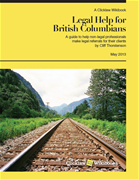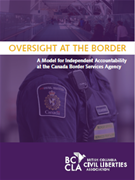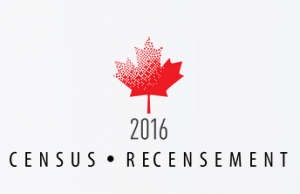2017 Bi-Monthly Update Series: May/June
To keep you informed, here are some highlights of changes and updates made to Clicklaw in May and June:
Jan-Feb | Mar-Apr | May-Jun | Jul-Aug | Sep-Oct | Nov-Dec
 Indigenous Law Research Unit (ILRU)
Indigenous Law Research Unit (ILRU)
ILRU is committed to the recovery and renaissance of Indigenous laws. The following resources build awareness of Indigenous laws:
- What is Indigenous Law?
This paper provides a discussion on Indigenous Law. - Recovering Indigenous Legal Systems & Governance
This video is a presentation on the issue of Indigenous traditions of regulation and governance and how those relate to settler legal institutions. - Indigenous Law Video on Demand
This collection of short educational videos provides critically oriented introductions to important topics in the area of Indigenous law.
- Aboriginal Child Protection Process
This revised flowchart provides a step-by-step overview of the Aboriginal child protection process and the rights of Aboriginal children and families. - Live Safe, End Abuse series
All ten fact sheets in the series have been revised and updated. They are now available online as a single combined version. The fact sheets provide information on what abuse is, how people can plan for their safety and protect their children, and who can help. - Living Together or Living Apart: Common-Law Relationships, Marriage, Separation, and Divorce
The revised and updated English booklet explains the basics of family law in BC.
 Legal Help for British Columbians
Legal Help for British Columbians
by Courthouse Libraries BC
All chapters have been recently reviewed and updated by a team of reviewers and contributors, all volunteers from the BC legal profession. This guide provides first steps to address over 40 common legal problems and information on where to get help. Published on Clicklaw Wikibooks, it is available in multiple media formats: wikibook, EPUB (for reading on a tablet or e-reader), PDF (print version), and printed books (will be available soon at public libraries across BC).
 RDSP Tutorial
RDSP Tutorial
by PLAN Institute
This online tutorial helps you learn about Canada’s Registered Disability Savings Plan. You can navigate through the chapters at your own pace or go directly to a specific question from the list on the homepage.
![]() Standardized wording for Bail, Probation and Conditional Sentence Orders
Standardized wording for Bail, Probation and Conditional Sentence Orders
by Provincial Court of BC
This resource has a list of picklists, which are lists of standardized terms for court orders. They are stored in courtroom computers so a Court Clerk can use them to quickly and accurately capture the order a judge makes. When a judge decides to change the standard wording, a Court Clerk can edit the term accordingly.
![]() Trans Rights BC
Trans Rights BC
by Catherine White Holman Centre and the VCH Transgender Health Information Program
This website is part of a project that aims to disseminate human rights information that is accurate, accessible, and relevant to the safety and well-being of trans and gender-diverse individuals and their supportive allies across British Columbia.
 Oversight at the Border: A Model for Independent Accountability at the Canada Border Services Agency
Oversight at the Border: A Model for Independent Accountability at the Canada Border Services Agency
by BC Civil Liberties Association (BCCLA)
In this new report, BCCLA proposes a model for providing independent oversight and accountability to Canada Border Services Agency (CBSA). It also includes detailed recommendations on the components necessary to ensure effective, credible oversight and review of CBSA’s activities.
With help from BC FIPA, we have added the following questions:
- How can I get access to my personal information from public or private bodies?
- How can I request information that doesn’t fall under “personal information”?
- I didn’t get the records I was looking for from a public body. What can I do now?
- Who can handle FOI/ATI requests? What are the costs?
- My medical records have been mishandled. Who do I contact?
Updated common question: Is marijuana legal in BC?![]()
Now includes the following resources from the federal government:
- Introduction of the Cannabis Act: Questions and Answers
- Legalizing and strictly regulating cannabis: the facts
Stay informed:

 This past year, your household would have received some form of the 2016 Census, which included a question that could stump a few people: Are you married? Do you have a common-law partner?
This past year, your household would have received some form of the 2016 Census, which included a question that could stump a few people: Are you married? Do you have a common-law partner? In BC, If you have lived together in a “
In BC, If you have lived together in a “
